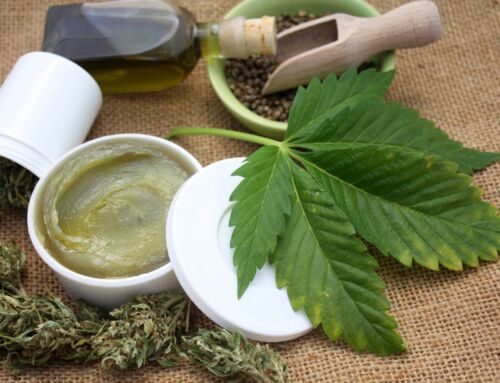The CDC estimates 20.6 million adults in the United States struggle with chronic pain severe enough it interferes with daily activities. And, while chronic nausea is less common, it can be just as disruptive.
The good news is, there are treatment options that can make things easier. In the state of Florida, medical marijuana is one of them.
In 2021, over 3.6 million patients use medical marijuana to find symptom relief. Doctors can now use marijuana meds to treat pain, nausea, seizures, and even degenerative diseases. You, too, might find relief with this treatment.
But, first, you’ll need a Florida medical marijuana card. Read this guide, then follow the six simple steps to apply for a medical marijuana card in your state.
Florida Medical Marijuana Laws: When Is Cannabis Legal?
Medical marijuana is the common term for prescribed Cannabis sativa. Cannabis sativa is a plant that naturally produces the compounds THC and CBD.
Some of these effects are potentially dangerous. As a result, it isn’t legal to use marijuana just for fun. But, in 35 states, it is legal to consume marijuana with a valid prescription.
In Florida, it isn’t legal to smoke marijuana in any rolled-paper form, even with a prescription. Instead, patients take medical marijuana in the form of pills, oils, sprays, or vape pens.
Eligibility
Not all illnesses should be treated with medical marijuana. In the state of Florida, physicians may prescribe Cannabis-derived medication for the following conditions:
- Cancer
- Epilepsy
- Chronic muscle spasms
- Glaucoma
- HIV/AIDS
- Post-traumatic stress disorder (PTSD)
- Insomnia
- Amyotrophic lateral sclerosis (ALS)
- Crohn’s disease
- Parkinson’s disease
- Multiple sclerosis (MS)
The state also empowers doctors to prescribe marijuana for comparable conditions. So, a patient who doesn’t have PTSD, but has similar symptoms, may still be eligible for a prescription. Terminal patients are also eligible.
How to Get a Florida Medical Marijuana Card
Eligible adults can apply for a medical marijuana card. If you are an adult and a permanent resident of Florida, you have two options. You can apply online, or you can apply by mail.
These six steps will cover how to apply through both methods. Minors, caregivers, and seasonal residents have a slightly altered process.
1. Determine Qualification
First, discern whether or not you qualify for a Florida medical marijuana card. You’ll need the following things for a successful application:
- An eligible medical condition
- Florida residence
- Clarity of mind
If you have a disorder that makes it challenging to give informed consent, you cannot get medical marijuana on your own. Instead, seek help from a caregiver to apply for a card.
2. Get Diagnosis and Prescription
Getting a diagnosis and prescription may be the most challenging step. First, make an appointment with a qualified doctor. Qualified doctors are registered with Florida’s Medical Marijuana Use Registry.
Then, work with the doctor on your treatment for at least three months. After three months, the doctor can legally write you a prescription for marijuana.
3. Register With Medical Marijuana Use Registry
The prescribing doctor will input your name in the registry. Once your information is in MMUR, you can log in to your profile.
The online application is on your profile on the MMUR site.
MMUR will automatically send your login information to your email address. Make sure to give you give the doctor your correct email address.
You may also apply by mail. To do this, ask your doctor to print out the application from the registry for you.
4. Complete Application
Gather the materials you’ll need to complete your application. This includes:
- Proof of residence (scan/copy of Driver’s license, monthly mortgage statement)
- Copy/scan of photo ID, or “passport-style” photograph
- $75 (via check, money order, or credit card)
To complete your application online, log in to the MMUR portal. If you forgot your password, you can request to change it.
Once you’ve logged in, look at the page header. Click the heading labeled, “Your Card.” That takes you to a new page.
On that page, click the leftmost button labeled, “Begin Initial Application.” Then, follow these directions provided by the State of Florida.
To mail in your application, fill in the printed application by hand. It will ask you for your:
- Full name
- Date of birth
- Address and zip code
- Telephone number
- Social Security Number
If you’re unsure of any of these, work with someone to gather this information beforehand.
Then, attach the full-color, passport-style photograph to the application.
For more detailed directions, see the informational flyer published by the state of Florida.
5. Submit Payment
If you’re applying online, submitting your payment is easy. At the end of the application, there will be a button labeled, “Click here to pay online.” You can click it to pay by credit card.
Mail the completed application to:
Office of Medical Marijuana Use
PO Box 31313
Tampa, FL 33631-3313
Once you’ve mailed the application, wait for its approval. To check on the status of your application, you can log into your MMUR profile. You can find your application’s status under the heading labeled, “Your Card.”
You can also check your application’s status by phone. Call 800-808-9580 to speak to an MMUR assistant.
6. Recieve Card (Pending Approval)
You should receive your Florida Medical Marijuana Card in the mail. You’ll typically receive your card in 10-15 days.
If you’re unsure of your application’s status, compare the icons on your MMUR profile with this guide. As soon as your application is approved, you can get marijuana prescriptions from a licensed dispensary.
If your card never arrives, you may need to replace it. It costs $15 to replace a lost marijuana card. Print and mail in this form to request a replacement.
Additional Instructions For Special Cases
Now you know how to get a medical marijuana card in Florida if you’re a permanent, adult resident. But, minors, seasonal residents, and caregivers need to take a few extra steps. Keep these in mind to stay legal.
Minors
A medical marijuana prescription for a minor must be signed off by two physicians. At least one physician must be a pediatrician.
Both the minor and the guardian must submit proof of identification and residency. For the minor, this can be a birth certificate or k-12 school registration.
In addition to all forms described earlier, parents of minor patients must sign a consent form. The form acknowledges the known risks of medical marijuana. It also acknowledges that marijuana is a Schedule 1 substance.
Seasonal Residents
Seasonal residents live in Florida for 31 consecutive days per year or more. Applicants must supply proof of temporary residence. You will need at least two proofs, rather than one.
Register for MMUR. Then submit the pieces of evidence along with your application.
Caregivers
Caregivers can receive medical marijuana prescriptions for those under their care. The registering physician must authorize the caregiver to engage with the MMUR on the patient’s behalf.
Caregivers must qualify as legal caretakers per Florida’s medical marijuana laws. A caregiver can only intercede on behalf of one patient, and you must be 21 years old or older.
Florida Medical Marijuana
Getting a Florida medical marijuana card can seem daunting. When you’re pained, anxious, or sick, taking the next step can feel impossible.
The good news is, you don’t have to go it alone. Our medical experts can be right there with you.
If you’re ready to work with a professional medical marijuana advocate, talk to us. Discover how to get the treatment you deserve.






